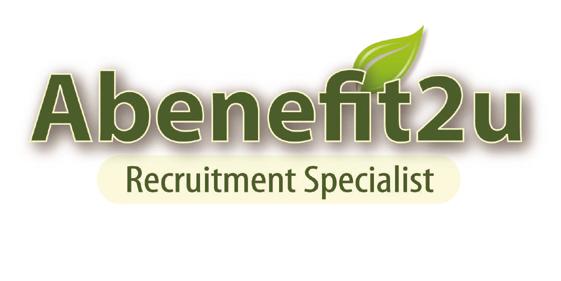




 Tim Middleton Director of Policy and External Affairs, PMI
Tim Middleton Director of Policy and External Affairs, PMI
In July, the Department for Work and Pensions (DWP) published a Call for Evidence called ‘Pension trustee skills, capability, and culture.’ This addressed the changing nature of trusteeship and called into question the adequacy of the existing regulatory requirements of trustees.
Since 2006, the basic standard of technical ability required of any trustee has been the Trustee Knowledge and Understanding (TKU) standards as set out in the Pensions Act 2004. These requirements expect trustees to have a basic understanding of trust law and to be familiar with their own scheme’s Trust Deed and Rules. At the time this requirement was introduced, the Pensions Regulator (TPR) introduced a free online resource called the Trustee Toolkit, which was designed to ensure that any newly-appointed trustee would have access to training that would enable them to achieve the basic competence threshold expected of them.

Over the next seventeen years, however, there were a number of developments which have led many in the industry to question the adequacy of TKU. The most recent concern was the crisis concerning the Liability Driven Investment (LDI) which arose at the end of last year. It became painfully clear that far too many boards were heavily dependent on their professional advisers and lacked the confidence and technical skills to question their advisers about the increasingly complicated investment strategies they were encouraged to implement. This brought to a head the question as to what should reasonably be expected of trustees. It is, after all, somewhat incongruous that trustees lacking any formal qualifications should be expected to manage a scheme whose assets might be greater in value than the employer which sponsors it.
The DWP Call for Evidence has finally addressed the issue of the standards that might reasonably be expected of trustee boards. It focused on three areas: trustee skills and capability, the role of advice, and barriers to trustee effectiveness, including duties. It has become painfully clear that the current standards expected of trustees are no longer adequate and that higher standards are to be expected in future. TPR expects there to be an expanded role for professional trustees and for lay trustees to demonstrate higher standards of technical ability. This will require trustee qualifications that will be far more demanding of learners than is currently the case.
This transformation will present a new challenge for PMI. As the principal educational body operating within the pensions sector, we will have to meet the changing expectations of TPR and the trustee community. This is a challenge that we will relish. PMI has provided qualifications for trustees for thirty years, and our educational options have evolved constantly in order to meet the evolving requirements of trustees and the professionals who advise them. Whatever conclusions the Government reaches concerning its changing expectations of trustees, PMI will continue to play a pivotal role in ensuring that trustees remain adequately prepared to perform their duties.
21
Bulk purchase annuities: Governance Challenges in a Busy Market
Capita’s Colin Parnell on the rush for small defined benefit pension schemes to complete buy-outs.
22
Bulk annuity market update: an insurer’s perspective
Standard Life’s Mat Richards provides market backdrop and commentary for 2023.
24
Improving outcomes. Creating value. Effective risk management. Integrated systems.
Dalrida investigate a government call for evidence that will be used to shape policy.
26
Insight Investment’s Head of Client Strategy asks what a new endgame might look like for pension schemes.
28
Inclusion on trustee boards: it’s about who you’re dancing with, not just who’s on the guest list.
Sackers & Partners LLP Associate Dan Traynor seeks out a more authentic approach to diversity and inclusion.
32
Ensuring equality, diversity, and inclusion – the role of trustees
Scottish Widows’ Master Trust Lead Sharon Bellingham examines the role of trustees in EDI initiatives.
EPMI Column
42
Once you fall, there’s no looking back

Intellica Limited’s Hannah Blomfield discusses how she fell into pensions.
43
My journey
Nestlé Pensions’ Adam Scarff reveals just how vast the pensions industry, and the opportunities within it, can be.
30
What is the difference between OCIO and fiduciary management?
Schroders Solutions’ Head of Pensions OCIO evaluates the difference between OCIO and fiduciary management.
of crisis
The Wealth at Work group consider the impact of and responses to rising costs on pensions savings.
44
My journey continues
Bravara Principal Consultant Johnathan Hawkins outlines how he became a pensions technologist.
A comprehensive breakdown of PMI Membership grades and programmes.
A breakdown of the latest news and notifications from across the PMI’s regional groups.
Our regular pensions puzzle.
A comprehensive directory of PMI services.
Head office Devonshire House, 6th Floor, 9 Appold Street, London, EC2A 2AP
Membership: +44 (0) 20 7247 1452
membership@pensions-pmi.org.uk
Learning and qualifications:
+44 (0) 20 7247 1452
PMIQualifications@pensions-pmi.org.uk
An overview of openings and career opportunities in the pensions industry.
Commercial development: +44 (0) 20 7247 1452
sales@pensions-pmi.org.uk
Finance: +44 (0) 20 7247 1452
accounts@pensions-pmi.org.uk
Editorial: +44 (0) 20 7247 1452
marketing@pensions-pmi.org.uk
23/24 PMI Membership Renewal now due
Your 2023-2024 membership became due on 1st September 2023 Renewal notifications and first reminder have been sent out to all student, professional, associate, and fellow members with a copy of your renewal invoice.
If you have not already received your renewal invoice or you need any changes made to your invoice information, contact us at membership@pensions-pmi.org.uk
PMI Membership Fees 23/24
Benefits include:-
• Access to CIPP Advisory Service – 12 enquiries per year
• Online Professional in Payroll, Pensions and Reward magazine
• Discount on CIPP training courses
• Payroll-related collateral
• Networking opportunities on CIPP’s Specialist Interest Group
• CIPP’s payroll jobs board
• Free attendance at online BeKnowledgeable webinars
We will be discontinuing the existing PMI affiliate membership on the 31 October 2023.
If you would like to retain your PMI affiliate member benefits and have access to exclusive benefits from the CIPP get in touch
If you are an affiliate member as a result of your employer being a PMI corporate member of the PMI this does NOT apply to you.
We have partnered with the Chartered Institute of Payroll Professionals to deliver enhanced value to members of both organisations. The partnership will also support PMI members with payroll functions in their role and help those wishing to expand their own professional understanding of this area. All existing PMI members who would like the additional CIPP benefits included can have this membership bolt-on added for an extra £50 per annum.
We have recently opened for bookings for our 10th Student Essay Competition sponsored by ITM. Open to anyone studying for a qualification within the pensions and retirement savings sector.
To find out more and to register please check our dedicated webpage here
Congratulations to all our recent membership upgraders!
Fellowship is open to Associates with five years membership and five years’ logged CPD.
We are pleased to announce that the following Associates have been elected to Fellowship and are now entitled to use the designatory initials “FPMI”
Wendy Davis
Louise Davey
Charlotte McAusland
Since the launch of PMI Pathways, anyone who has completed a PMI Qualification post-2016 including the Award in Pension Trusteeship (APT) or Award in Pensions Essentials (APE) is now eligible for Professional Membership, and you are now one step closer to completing 3 of the 5 Pathways. To find out more please click here
Continuing Professional Development (CPD)
Fellows and Associates are reminded that their 2022 CPD was due on 1st January 2023. Meeting the PMI CPD requirement is compulsory (except where retired/non-working). Under our CPD Scheme, PMI members are required to record at least 25 hours during the year. Please log on to your member portal and update your CPD record now if you have not already done so. Failure to complete may result in your membership being downgraded and you will lose your entitlement to exclusive APMI and FPMI member benefits such as the use of your designations, voting rights and opportunity to be elected to PMI’s governing structures.
If you do need to make up any shortfall in 2023 please get in touch with us so we can advise you.
If you wish to record a self-declaration for CPD completed under the auspices of another professional institute, please download the self-declaration form here, and return this to membership@pensions-pmi.org.uk
Have you recently become a non-executive director or board member? Did you know you can receive a 15% discount for training courses with NEDonBoard
We have partnered with Portfolio Institutional to offer all Associate and Fellow members a free monthly subscription to their magazine. More than 6000 copies of their print magazine are distributed each month to pension fund trustees, asset managers, investment consultants and related industry readers. To find out more and request a free subscription click here
All our members can benefit from hundreds of discounts and savings from a range of products and services with a Totum PRO card. Click here to find out more today.
Are you paying too much for your present private medical plan? The PMI have partnered with HMCA to offer all members discounted rates for medical plans, dental plans, hospital cash plans, travel plans, income protection and vehicle breakdown products. Click here to find out more

The PMI will be opening bookings for the Spring 2024 exams from October 2023. Our bookings are subject to maximum capacities, so please ensure you book on as early as possible to guarantee a space onto the exam sitting of your choice.

The PMI will be holding their Spring exams on the following dates:
• Certificate in Pensions Calculations (CPC): 11-21 March 2024
• Retirement Provision Certificate (RPC): 26 March 2024
• Award in Pension Trusteeship (APT): 26 March 2024
• Advanced Diploma in Retirement Provision (ADRP): 15-19 April 2024
Please review the booking information carefully on each of the booking pages (before making a booking), as you need to ensure you have the correct device compatibility to sit the exam.
Due to expected high volumes of bookings, your exam time could differ to the timetables on each booking page. A method of ‘staggered timing’ is used, which can be best described as being like the onboarding of a flight when taking a trip abroad to ensure smoothness and efficiency. This technique is typically mirrored with exams, to ensure a smooth onboarding experience.
We encourage each learner to book onto a revision course, to help prepare for the Spring sittings, and these will be available to book from 16 October 2023, so please keep a close eye on our events page here. The revision courses are typically anything from 4-6 weeks ahead of the exams. The revision courses should never be used as the sole revision tool for preparation, but instead used as an aid to enhance and consolidate knowledge, as well as the ideal opportunity to ask the tutor hosting the session any questions you may have.
We encourage all learners booked onto the ADRP (or one of the Diplomas), to take part in assignment submissions, as this is an ideal way to practice questions from the manuals and have them marked by a tutor, to receive individualised feedback. We also provide mock exams, which are a useful tool to help prepare for an exam setting. The learning website can be found here
The cost of these exams/sessions will also be increasing to the prices below:
• Certificate in Pensions Calculations (CPC): £195.00
• Retirement Provision Certificate (RPC): £495.00
• Award in Pension Trusteeship (APT): £325.00
• Advanced Diploma in Retirement Provision (ADRP): £545.00
• Certificate in Pension Trusteeship Unit 2 ‘Soft Skills’ (CPT Unit 2): £325.00
• Diploma in Pension Trusteeship (DPT): £395.00
• Revision Courses: £70.00
If you would like any guidance on our qualifications, please contact the qualifications team directly: PMIQualifications@pensions-pmi.org.uk

The PMI London Group hopes all our members had an enjoyable summer!
We held our Annual General Meeting in June. The London Group would like to commend Amanda Burden (Board Director, Pi Partnership Group) for her leadership for four excellent years as Chair, guiding us through the challenges of Covid to the strong position we are now in. Giles Bywater (Partner, Mayer Brown International) has graciously agreed to Chair the London Group Committee and we’d like to thank Amanda for agreeing to remain on the Committee. We’d also like to welcome our two new Committee members, Rebekah Bennett (Consultant Relations Director, Charles Stanley Fiduciary Management) and Tony King (Group Pensions Operations Manager, Reach plc).
Once AGM matters had been concluded, we were joined by Sir Steve Webb (Partner, LCP) for a "fireside chat" with Amanda that delved into the many challenges that currently face the pensions industry and considered where opportunities for the future may develop. The London Group would like to thank Sir Steve for his highly informative insights and anecdotes, as well as Aon for their hospitality in hosting us. It was really nice to see so many of our members after the AGM for networking over drinks and nibbles!
Remember to keep an eye out for details of our upcoming social events and business meetings via the PMI London Group LinkedIn Group. At the time of writing, we’re planning a seminar on Artificial Intelligence and a fireside chat with the Pensions Ombudsman.

The Scottish Group held an afternoon seminar in Glasgow on 23 August. It was our most well attended event so far with around 50 people including speakers covering a range of hot topics –
• Fall-out from the LDI crisis: Sian Pringle, head of XPS’s Investment Risk Settlement team
• The trustee challenges arising from the impact of inflation / interest rates / cost of living on pension schemes and members: Nicola Paul, Trustee Director, Vidett
• Cyber security and lessons from recent cyber incidents: Shriparna Ghosh, Director within EY’s Cyber consulting practice and lead for the EY Cyber team in Scotland
We were also joined by Gareth and Nisha from the PMI, with Gareth providing an update on PMI Pathways. Drinks, canapes and an opportunity for networking followed the event, and feedback from delegates was very positive.
The PMI Scottish Group now plans its next event, hopefully before year end.
PMI is hosting a range of pensions-industry-leading events for 2023. With industry specialists delivering the best insights and knowledge to flagship events such as The Pinnacle Awards, excellent networking opportunities and extensive partner exhibition and sponsorship packages. For further details please select from the list below or see pensions-pmi.org.uk/events for the full programme.
12 October 2023
Retire Matters Training Taster Session
2 Nov 2023
Trustee Workbench
6 November 2023
PMI Cyber Training
23 Nov 2023
The Pinnacle Awards
7 Dec 2023
ESG and Climate Summit


"CONGRATULATIONS TO ALL OF THOSE SHORTLISTED FOR THIS YEAR'S PINNACLE AWARDS"
Daisy Gillett
Barnett Waddingham
Claire Hayward Sestini and Co Pension Trustees Limited
Amina Mahmood CMS LLP
Chloe Leslie ndapt
Scott Foster
CACEIS
Frontline Hero of the Year
Dian Smith
Mayer Brown
Claire Lincoln World Gold Council
Mark Hewitson WEALTH at work
Zahid Hai CTC Pensions Tech
Samantha Hayward
Sestini and Co Pension Trustees Limited
Mark Grant CMS
Jonet Dunmore
Cadent
Emma Douglas Aviva
Charlotte O'Leary
Pensions for Purpose
Paul Jayson Barnett Waddingham LLP
Pin-Nee Tang ndapt
Stuart White HSBC Team of the Year
Fund Accounting and Investments Team West Northamptonshire council
UK Pensions Group Mayer Brown
Pensions Dispute Resolution Pinsent Masons LLP
Member Services Team Pension Protection Fund
Burges Salmon LLP Burges Salmon LLP
CMS Pensions Team CMS
Annuities Development Team CTC Pensions Tech
PEMS Team
Barnett Waddingham LLP
Travers Smith Pensions Sector Group Travers Smith ndapt ndapt
XPS Continuous Improvement Team XPS Pensions Group
The First Contact Team
Mercer
Scottish Widows Master Trust
Scottish Widows
Lifetime Achievement Award
Patricia Sharman
CACEIS
Ros Altmann
Cushon
Jane Hanson CBE Reclaim Fund Ltd
Anna Rogers
Arc Pensions LLP
Paul Brice Grant Thornton UK LLP
Francois Barker Eversheds Sutherland
Karen Goldschmidt LCP
Baroness Helena Morrissey Diversity Project Investment Industry
Joanne Segars OBE
John Ralfe
John Ralfe Consulting
Kim Gubler KGC Associates
Discover Cardano
Gemini Intellica Ltd
Pensions Fusion
ITM
MagicAnswer
EthicsGrade
Cushon - the digital Pension Cushon
Ada Fintech Redington
George Williams
CTC Pensions Tech
EthicsGrade ratings
EthicsGrade
Pi Partnership Ltd
Pi Partnership Ltd
Gretel
Gretel
ndapt wini
ndapt
A joint initiative between EY, LCP, Independent Governance Group and Hogan Lovells
Hogan Lovells
CACEIS Academy
CACEIS
Pensions Academy
Brightwell
CMS Pensions Law Appraised CMS
Innovation in Collaboration, Learning and Development facilitated through Independence Pensions for Purpose
People's Partnership
People's Partnership
Innovation in New Product or Service
Access to private market investments
Phoenix Corporate Investment Services
Pension Buyout Comms Quietroom
Technology – innovation and adaptation to enter new markets Equiniti
Dormant Assets Scheme Expansion Reclaim Fund Ltd
FreePayroll from Collegia –maximising access to auto enrolment Collegia
No Member Left Behind Likeminds
Berenberg Protected Equities Berenberg
Defined Contribution (DC) investment modeller Hymans Roberston
Invesco Quantitative Strategies Invesco
Burges Salmon LLP Burges Salmon LLP
PwC Pensions Employer
Covenant & Restructuring teamSuite of tech tools
PwC
Drumroll Accessibility
DrumRoll part of Barnett
Waddingham
Dcube
CTC Pensions Tech
Stewardship Overlay Service + Investor Stewardship Service
AMX by Carne
An artificial-intelligence-based solution to the examination of household conditions for the TSSA assignment in Azerbaijan
State Social Protection Fund of Azerbaijan
Independent professional trusteeship services
Pinsent Masons LLP
Enhancing member understanding of the scheme
People's Partnership
Tailored Investment strategy
Vidett
ndapt wini
ndapt
Emerging Markets Just Transition
Investment Initiative
Church of England
Pinsent Masons LLP
Burges Salmon LLP
CACEIS
Church of England
Client Earth
Chilli communication
Chilli communication
LCP's Vulnerable Members Specialist Group
LCP
ZEDRA Inside Pensions
ZEDRA
Rothesay
Rothesay
The Travers Smith pensions ESG initiative
Travers Smith
IMPACT LENS Research, led by Karen Shackleton Pensions for Purpose
Andrew Warwick-Thompson Capital Cranfield
Brian Spence Spence and Partners
Steve Webb
LCP
Stuart White
HSBC
Dormant Assets Scheme Expansion Reclaim Fund Ltd
UK Pensions Group Pro Bono Initiative
Mayer Brown
People’s Partnership
People's Partnership
Eversheds Sutherland
Eversheds Sutherland
An artificial-intelligence-based solution to the examination of household conditions for the TSSA assignment in Azerbaijan State Social Protection Fund of Azerbaijan
John Parker
CTC Pensions Tech
With PMI Pathways, you can reach the top – whichever career path you have chosen.
Because now, all members can progress from Student Membership to Fellowship, without any dead ends or diversions.
For more information, please go to: www.pensions-pmi.org.uk/pmi-pathways
Having been new to the industry, the perfect opportunity arose through the mentoring programme for me to polish my skillset through the ILM modules in addition to gaining a valuable insight to the industry through the experience and wisdom of my mentor David Lunt, Head of Business Development at People’s Partnership. I was extremely fortunate to be paired with a mentor with great experience, credit to Nisha Harley, Membership Development Manager at Pensions Management Institute. This allowed the process of having open communication with my mentor about any current experiences along with difficulties to be a much smoother process. I found the format of how the meetings were held to be very supportive and adapted well to my learning style and trait. The time that was created for us to have an open ended discussion after each module completed was refreshing and allowed me to expand my mindset on certain topics
and have a different perspective which allowed me to have a better understanding of the “wider picture” in certain areas of my current role. The introduction to Kahler’s Drivers would be one of my highlights that my mentor kindly introduced me to alongside the Communication module within the ILM, particularly the Power of Non-Verbal Communication which has helped immensely with many conversations/meetings taken with PMI stakeholders.
The PMI Mentoring Programme has been incredibly helpful to myself expanding my current network alongside having an additional accolade to attach to my CV which is viewed to be very desirable and a great aid to my career development.
Many thanks to everyone who’s involved within the PMI Mentoring Programme, an extremely valuable and insightful experience that I highly recommend to anyone interested.
 Ryan Miranda, Administrator PMI Academy, PMI
Ryan Miranda, Administrator PMI Academy, PMI


I hoped to gain a deeper understanding of pension options by talking to an industry expert - and to regain some confidence I’d lost through lockdown / working from home.
My mentor was brilliant. We talked about issues I was facing, she shared examples from her working life and even suggested a mantra for moments of doubt - what would Beyonce do?
In our sessions, we talked about what I’d learnt from the (excellent) learning resources and set goals for our next session.
I'd recommend this scheme to anyone early in their career journey or who's looking for a refresher.
My experience as a mentee in the PMI Mentoring and Development Programme was brilliant. Being matched with a senior female leader within the pensions industry with a wealth of knowledge, advice and connections was an invaluable experience.
My main reasons for joining the PMI programme were to further expand my pensions knowledge, to enhance and develop my leadership skills and to become better connected within the industry. All of these aims have been achieved, and then some.
Throughout my time as a mentee, and with the incredible support of my mentor Lesley Carline, I have been successful in receiving a promotion, I have been shortlisted for Newcomer of the Year in the 2023 Women in Pensions awards and I have joined the NextGen Media and Communications Sub-Committee to further expand my skills and network.
Congratulations to my mentor Lesley for being awarded Mentor of the Year in the 2022/23 programme, this is thoroughly deserved, and your next mentee is extremely lucky to have you! I would without hesitation recommend this mentoring programme to others.
My colleagues had previously completed the PMI last year and spoke highly of it. Eve has been my mentor and I don’t think we could have been a better match! When I meet with Eve it feels like I have known her for a long time and our conversations are organic. Pensions is a funny conversation to most. It’s nice to be able to speak to someone who is like-minded and able to give you guidance and advice on what you are looking to achieve. I would highly recommend this to anyone thinking of taking it next year. The support is brilliant, and the modules are short, effective and achievable

Objectives/reasons for joining the Mentoring and Development Programme
I joined the mentoring programme to stretch myself and do something I haven't done before which I thought was important to help young up-and-coming pension professionals developing their career.

How your sessions with your mentee have helped to achieve career goals
We have structured sessions to initially set out what they wanted to achieve from the programme, their short and medium-term aspirations and defining 3 things they want to improve over the 12 months.
In each session, we talked about day-to-day activities and issues and explored, in relation to their key three objectives, ways of working with colleagues and managers to grow their career and which modules will be most helpful.
Any success stories because of taking part that you would like to share
We benchmark ‘how are you doing out of 10’ 3 times through the year versus the objectives as a tester. All my mentees have reported feeling stronger and finding better ways to get things done and build their outward profile.
Why you would recommend the programme to a colleague
It is a two-way street, we have some great conversations about life outside of work. I have felt enriched, and I am a much better coach for supporting people outside my own working environment.
Do it. It will give you back 5 times over what you put in…
For 175 years we have been expanding our knowledge, broadening our horizons and seeking new investment opportunities for our clients.
Today we organize our investment teams globally by asset class, bringing the breadth and depth of our research and investment capabilities together for our clients around the world. We call it investing beyond borders. Find out more at www.aegonam.com

For professional investors only. Capital at risk. The value of investments can go down as well as up. This marketing is issued in the EU and EEA by Aegon Investment Management B.V. and in the UK by Aegon Asset Management UK plc. Aegon Investment Management B.V. is authorised and regulated by the Netherlands Authority for the Financial Markets and Aegon Asset Management UK plc is authorised and regulated by the Financial Conduct Authority. Aegon Asset Management businesses are wholly owned subsidiaries of Aegon N.V. Adtrax: 5189234.1 | Exp. date: 30 June 2023

The rush for small defined benefit pension schemes to complete buy-outs has given insurers increased power to dictate transaction terms. This presents new governance challenges for trustees to navigate. Here are our top six points for trustees to consider in this busy buy-out market.
1. Is buy-out right for us?
Trustees should consider all potential paths and the impact on members before making a decision to buy-out. Indeed, the latest exposure draft of Technical Actuarial Standard 300 explicitly requires advising actuaries to consider alternatives such as running the scheme on and Superfund consolidation.
2. What about the loss of control?
A buy-out means no turning back –surrender of the policy is typically impossible. A Part VII transfer could mean that you insure with one provider but end up with another in the future. This can be unsettling but is part of the deal – a tightly regulated transfer process provides some comfort.
3. Should we choose an exclusive process?
Very small schemes often struggle to get more than one buy-out quote, leading to an exclusive process with one insurer, chosen before quote stage. This can go against procurement processes as well as cause concerns about whether it is the “best” deal. A balance needs to be struck, with the aim being a single “acceptable” price rather than the “best price” in the market.
4. What about reinsurance risk?
Reinsurance has become a key driver of buy-out prices, with combined asset and longevity reinsurance coming under increased scrutiny by the Prudential Regulation Authority (“PRA”) due to its complexity and level of exposure at some insurers.

Trustees should take specialist advice to ensure that they are making informed and balanced decisions regarding insurer financial strength and risk.
5. Are our benefits too complex?
Some small schemes have unusual benefits, some of which may be discretionary. Due to increased workload, insurers are now less accommodating of pricing these benefits, and trustees may need to accept that the insured benefit is not a mirror image of the scheme rules. A pragmatic legal advisor will help trustees navigate their fiduciary duties in these situations.
6. Liability management
For small schemes, some options such as bridging pension options may not be available from insurers for future retirements after an annuity purchase. Therefore, governance decisions may need to be made about how and when to end such offers.
To summarise, trustees and sponsoring employers of small schemes have a tough job to govern a bulk annuity purchase in a market that is becoming increasingly tilted in favour of insurers. However, in our experience, spanning 200 transactions, good governance will balance a range of factors and will deliver a result that is in members’ best interests.




The impact of the mini-budget in Autumn 2022 continues to be felt within the pensions world today. Many Trustees will find themselves in the unexpected position of being closer to their funding targets, or in a position of surplus that they could not have envisaged at the start of the last year. This is clear from the proportion of schemes in surplus, which increased from 80% to 97% over the year to May 20231 and has resulted in an unprecedented surge in demand for insurance pricing. Improved funding levels look to be here to stay as the Bank of England continues to hold interest rates above 5% to try and stifle the high levels of inflation that we have witnessed over the last 12 months.
If the schemes that have benefitted from recent market events have been able to lock in those improved funding positions, the demand for insurance isn’t going to slow down any time soon. Many insurers are now becoming more selective about which transactions they can price on. It can be worth discussing with your advisors which providers you think are likely to engage with your section of the market and then approaching those providers, as a reduced field of competition and visibility of preselection will likely lead to a higher level of insurer engagement. Potential new entrants in the market may also help to address the challenges of resource capacity.
The graphic above shows the deal volumes received and quoted on by Standard Life in 2023. We are quoting on nearly three quarters of the market by volume, but less than half by number. This shows that although we aim to be a whole of market player, there is a continued rise in small scheme cases that we have not been able to quote on. Additionally, size no longer ensures full market participation, as all insurers are becoming more selective on what they quote on, even with larger trades, and as such preparation has never been more important for Trustees to ensure they can gain the attention of insurers.
There are no firm rules that will guarantee engagement, but Trustees can certainly position themselves for success by focussing on these areas.
Data – Data will need to be cleansed during verification and seeing that this work has started demonstrates to insurers that Trustees are committed to a transaction. If there are ambiguities within how the data is set out that requires insurers to make assumptions, then there is likely to be uncertainty over the final transaction premium until the end of the data cleanse period. Most insurance transactions will incorporate some level of reinsurance, and most reinsurers also now require a marital status tracing or spouse existence exercise to be completed as part of the pricing exercise. As such, completing this process in adequate time so that it can be shared with the bidding insurers can assist in the speed at which pricing can be received. Not all aspects are essential before a transaction process begins, for example most insurers are comfortable to incorporate GMP Equalisation and rectification exercises into the data cleanse process.
Benefits – A clearly defined, legally reviewed benefit specification is critical. Discretions need to be codified and clarified so that they can be definitively priced. Ambiguity in a benefit specification can make it challenging for price comparisons between the quotes received. If Trustees are clear about benefits and have an open discussion with prospective insurers about potentially challenging benefits, they are likely to receive more engagement.
Assets – Since many Trustees were not expecting to find themselves in the position to purchase insurance so soon, some of the assets are likely to have a liquidation timeframe that does not match their intended insurance timetable. Discussing your approach to managing illiquid assets held can be a material component of your decision-making strategy. At Standard Life, we are happy to assist in the development of your approach and have used methods such as secondary market sales, deferred premiums and partial transactions successfully with previous clients.
Governance – Getting the right decision makers to opine and approve key milestone decisions is very important in the transaction process. In a fast moving market, a lengthy delay while trying to get approvals can be costly. Engaging key stakeholders early is key. Insurers will be looking to see that these work streams are in place during initial engagement.
Ultimately, preparing yourselves for market entry is more critical than ever. Trustees need to work with their advisors to understand how they will assess the value of the quotations that they receive, and have the correct governance in place to be able to act decisively when the correct terms are presented. There are pockets of opportunity in this busy marketplace, and well-prepared Trustees who are able to act upon these, will be the ones that reap the benefits.
Insurers highlight these as some of their core values and strengths. Can we say the same for all trustee boards of occupational pension schemes and they way they operate today?
The Government has issued a call for evidence1 that will be used to shape policy with the aim of “removing barriers to trustees’ ability to make effective decisions”. Ironically, there are very few barriers to entry for someone becoming a trustee or even a professional trustee.
Why then has it taken so long to put the trustee world under the microscope and examine whether there are the appropriate skills and abilities to make effective decisions in the current operating model and regulatory framework? Particularly when we already know the answer to the question posed at the start of this article is “no”.
The role of pension fund trustee is unique within the financial services industry. Broadly anyone over the age of 18, regardless of skills or experience (provided they are not bankrupt, disqualified as a company director or a convict) can market themselves as a “professional trustee”. Compare and contrast this with the qualifications and experience required to be a scheme actuary (who is one step removed from the decision-making). Moreover, compare it with the restrictions and controls around decision making in an insurance company. Then reflect that basically insurance companies and trustees solve the same broad asset-liability problem.
Pension schemes require a professionalism that needs to be levelled up across all schemes regardless of size or nature of sponsor. The trustee industry needs direct, individual regulation, as is the case in any other financial market of similar size, and specific consideration should be given to whether (and how, and when) a professional trustee (definition compliant) should be appointed to all schemes with a duty to raise standards.2
There are no lay actuaries, lay lawyers or lay investment consultants but, for trustees, we have a model that allows lay people to make decisions impacting millions of people with billions of assets at stake.
Let’s be very clear, most trustees do their level best to carry out their role and meet their fiduciary duties. And lay trustees often provide crucial scheme and sponsorspecific insight and knowledge. They can also provide an opportunity for diversity of thought.
Nevertheless, the role of a pension fund trustee is incredibly broad and, on certain subjects, the complexities are lost on certain lay trustees. Further, they are often challenged by the time commitments required to keep pace with market and regulatory developments.
Trusteeship should be a long-term and well rewarded career. It will evolve into an executive function, since the trustee is going to be asked to take decisions involving risks - be it investment, legal or operational. Amongst other things, a trustee must be able to:
• Identify the problem
• Collect data
• Map out possible solutions
• Consider alternatives
• Challenge advice received
• Make informed decisions
• Enact a plan
• Review the effectiveness of decisions
Let’s use the above list and apply it to the call for evidence on trustee understanding on issues such as the risks and benefits of productive finance assets. With no prior experience or knowledge, it is difficult to see how many trustees can challenge advice being proffered by a limited number of consultants; perhaps, some with vested interests.
It might be the case that well governed boards can do this, mainly on larger schemes. However, there are trustees that cannot do this themselves and are overly reliant on their adviser(s) with no real scrutiny around the end-to-end process of receiving and reviewing advice and decision-making.
So, coming back to the barrier for entry: let’s make the barrier high, and define professionalism and make it clear.
Professional trustee due diligence should be at the forefront of any selection exercise, as this is a diverse market. Those with robust teams and infrastructure, high liability insurance and willingness to invest in innovation, environmental and social governance (ESG), technology and diversity, equity and inclusion (DE&I) are viewed in the same bracket as the person who has two or three trusteeship cases and is doing this on a part-time basis, possibly as an end-of career choice. We need to increase the understanding of purchasers of trustee services to ensure it is fully transparent who or what you are purchasing.
Even if a trustee does not need formal qualifications to make them an excellent trustee, they must have the requisite skills and access to dedicated resource, expertise and technology across a whole range of areas within their own governing function to account for the fact that no single trustee knows every facet of the pensions world. Although it is evident that there is a role to play for Government and regulatory bodies to drive up trustee standards, the pensions industry and trustee boards themselves need to recognise any current shortfalls and embrace recent consultations as a pathway to positive change, upskilling trustees and adding a layer of professional decision-making to boards.
Regulation and legislation needs refining to ensure and monitor that a trustee is fit for purpose to run what effectively is a complex financial instrument with multi-faceted elements of risk. Only through this can we truly really unlock the value in pensions for the good of beneficiaries, sponsors and wider corporate UK.
After all, trustees are striving for improved outcomes, creating value and effective risk management through fully integrated systems. Just like insurers.

After years of prudent management, pension schemes are now in a much stronger position, and many are now able to afford to conduct a buy-out – but many are asking whether they should do so. Let’s explore this from a member, sponsor, and a societal perspective.
A simple mathematical fact is often overlooked when considering whether to run on a pension scheme: when a pension scheme is able to conduct a buy-out, those assets only need to generate a very low rate of return, only slightly above gilt yields, before they generate additional surpluses.
Given this, many past concerns – such as investment risk, and instability in sponsor contributions – need no longer be an issue. Compared with well-funded pension schemes today, there are very few pools of capital with such low levels of required returns. This would typically be deemed a highly valuable asset in any other part of the economy.
If a pension scheme in this position continues to run on, it is not difficult to see why DB pension schemes of the future could have the scope to:
• offer enhanced benefits for members,
• reimburse surplus capital to sponsors,
• improve the intergenerational equity and security of pension provision by supporting DC schemes, and
• provide finance to support economic growth and broader societal objectives.
Such benefits have come under the spotlight following a range of high-profile initiatives – including Chancellor Jeremy Hunt’s Mansion House Reforms, and the accompanying call for evidence on the options for DB pension schemes. However, despite these benefits, many often think more about the risks and constraints of running on their pension scheme.
In our experience, certain misconceptions often hold back trustees from considering running on a pension scheme. These include concerns over investment risk, the potential to trigger future sponsor contributions, and legal issues involved in the sharing in the benefits of surplus, but these fears are often unfounded.
• For a sufficiently well-funded pension scheme, investment techniques already exist to enable further surpluses to be secured with low dependency on the sponsor.
• For schemes that have secured future cashflows through contractual assets such as bond investments, dynamic discount rates can take this into account – meaning market movements need not trigger unnecessary sponsor contributions.
• Finally, legally, there are mechanisms for most schemes and sponsors to share in the benefits of a surplus above a prudent level of funding.
Historically, with many pension schemes underfunded, it was natural for trustees and sponsors to perceive their pension scheme as a burden. Against this backdrop, the prospect of a buy-out seemed naturally attractive.
These points may challenge trustees to consider what other motivational factors may be stopping UK DB pension schemes from realising the potential benefits available from c.£1.5 trillion of capital, such as discretionary increases in benefits for members in the next cost-of-living crisis, lessening the financial burden on sponsors while providing an effective DC arrangement for employees, and providing finance that can help support wider society in the future.
To illustrate the implications, a pension scheme could invest today in a diversified portfolio of high-quality corporate bonds to achieve a contractually defined return of gilts plus 1% to 1.5% per annum. For a fully funded 11 £1bn scheme with a 15-year duration, this level of excess return would equate to an additional asset valued at c.£150m to c.£225m. Is it so obvious that the ‘value’ of such future surpluses should be given away?
A buy-out removes a governance burden for trustees and often provides peace of mind to sponsoring companies, given the history they have been through. However, it seems clear that pension schemes today are in very different circumstances – they are no longer burdened with the funding challenges of the past.
Pension schemes’ position today means that many sponsors can already have peace of mind, as they now face a very different future. Given the ease of the investment challenge, the decision to buy-out could be equivalent to a decision to hand over a low-risk asset worth often hundreds of millions, or in some cases even billions, of pounds, to the detriment of potential beneficiaries – both scheme members and sponsors.
A consideration by both trustees and sponsors of the options available for running on a scheme, and an assessment of the potential costs and benefits associated with doing so, could yield surprising results to many.
Whether trustees and their advisers focus on the potential risks or benefits, it seems we could be on the verge of a historic shift in how to consider the role of DB pension schemes for the future. This is an unprecedented opportunity to shape the future for UK individuals, corporates and the wider society. All that is required is a desire to explore your options.
1. For the purposes of this example, we define fully funded as a pension scheme that requires an investment return in line with gilts to fully afford its members’ retirement benefits.
Investment in any strategy involves a risk of loss which may partly be due to exchange rate fluctuations.
Any projections or forecasts contained herein are based upon certain assumptions considered reasonable. Projections are speculative in nature and some or all of the assumptions underlying the projections may not materialize or vary significantly from the actual results. Accordingly, the projections are only an estimate.
Portfolio holdings are subject to change, for information only and are not investment recommendations.
This document is a financial promotion/marketing communication and is not investment advice.
Insight does not provide tax or legal advice to its clients and all investors are strongly urged to seek professional advice regarding any potential strategy or investment.
Unless otherwise stated, the source of information and any views and opinions are those of Insight Investment.
Telephone conversations may be recorded in accordance with applicable laws.
For clients and prospects of Insight Investment Management (Global) Limited: Issued by Insight Investment Management (Global) Limited. Registered office 160 Queen Victoria Street, London EC4V 4LA. Registered in England and Wales. Registered number 00827982. Authorised and regulated by the Financial Conduct Authority. FCA Firm reference number 119308. © 2023 Insight Investment. All rights reserved. IC3357

“Diversity is being invited to the party, inclusion is being asked to dance.”
Pension scheme trustee boards may not have been forefront in Vernā Myers’ mind* when she coined the now famous phrase, but should trustees take note when planning their board meetings (often parties themselves, right)?
In March this year, TPR published its equality, diversity and inclusion (EDI) guidance. The guidance is aimed at supporting and empowering both trustees and sponsoring employers in their efforts to improve EDI on trustee boards.
Equality and diversity (ie having a diverse group of people around the table) are not new concepts to trustee boards. Many schemes have been actively attempting to recruit trustees from diverse groups and ensure their ‘guest list’ is open to all. However, the inclusion element can be overlooked at times – this is something TPR’s recent guidance has sought to address.
Venue and Catering. A party that is difficult to get to or from, or one with a poorly catered buffet, will never be a success. The same goes for trustee board meetings. Meetings should, where possible, be held at times and locations that are convenient for all trustees, observers and advisers. Trustee boards should embrace the use of technology and hybrid / virtual meetings to fit around attendees’ needs and other commitments, particularly those who may need reasonable adjustments to be made and those with caring responsibilities or irregular working patterns.
For ‘in-person’ meetings, the buffet remains important. Are all dietary requirements catered for and are attendees given regular comfort breaks and chances to refuel?
Whilst these considerations may sound very simple, it is important trustee boards get them right, particularly for new trustees. Ensuring the ‘newbie’ is given all the tools for success and feels welcome to be themself is a great way to encourage active participation in discussions.
Who’s picking the music? Shania Twain on repeat for the entire evening may be some partygoers’ idea of heaven. However – speaking from experience – this may not be the most effective route to ensuring that everyone in the room remains engaged. To that end, the agenda is the playlist of any trustee board meeting.
Whilst there will be no shying away from current projects and the regular business-as-usual agenda items, inviting input from trustees (via board effectiveness reviews, skills assessments, and periodic one-to-one interviews with the Chair) as to what items they think should be covered may lead to a more engaged and enthusiastic board. This could be done in light of any training needs that trustees have identified and in conjunction with advisers to ensure the relevant points are prepared and covered.
Dancing lessons? A surprise ceilidh or salsa session is one sure fire way to turn the dancers at your party into spectators. The Scottish contingent and the Flamenco dancers in the room will thrive but everyone else may feel out of their depth and unable to get involved.
Now substitute ‘ceilidh’ for ‘early retirement factors review’ and ‘salsa’ for ‘risk transfer project’ and it’s easy to see how trustees can become spectators in board meeting with those items (or a whole range of others) on the agenda. An EDI-focussed board will have trustees from a range of different backgrounds with different experiences and skills. Some will have been involved in several risk transfer projects before and others may only have been a trustee for a few months.
Therefore, training is key. Before any major project is embarked upon or a new or topical items comes up, the board should consider whether trustee training would be appropriate – your first tango on Strictly Come Dancing without a few dance lessons would not go well. Having all trustees with a good base level of understanding allows everyone to contribute and prevents one or two trustees who may be more familiar with a topic from inadvertently steering the discussions a certain way.
Regular training sessions (perhaps at the end of quarterly trustee meetings or a separate training day or two every year) allows long-serving trustees to refresh their knowledge and understanding and give newer trustees the grounding they need to be effective.
TPR’s guidance challenges the Chair of trustee boards to be the lead dancer and choreographer when it comes to driving EDI on their boards. The guidance includes specific advice for Chairs, including on encouraging an open and inclusive culture, assessing EDI objectives and promoting EDI in recruitment and selection of trustees.
However, EDI, by its very nature, is not a solo performance. The engagement of the whole trustee board as well as employer representatives, observers and advisers is essential in ensuring any scheme effectively adopts and nurtures EDI initiatives and fosters an inclusive environment.
So trustees, if diversity is being invited to the party and inclusion is being asked to dance then Strictly Coming Dancing hits the nail on the head; keeeeeep dancing!
*Vernā Myers is an inclusion strategist, social commentator and best-selling author. She has written extensively on various diversity and inclusion topics and is considered a leader in the EDI field.

Outsourcing investment management can be an effective way for trustees to delegate investment responsibilities, but it's important to understand the different approaches available. OCIO (Outsourced Chief Investment Officer) and fiduciary management are two common delegation models used by trustees, but they differ in key ways. This article seeks to provide clarity on the subtle but important differences between the two approaches.

OCIO is an investment management model where a pension scheme outsources its investment management function to a third-party provider, often an investment management firm. The provider acts as the scheme's Chief Investment Officer, taking on responsibility for investment policy and asset allocation proposals, manager selection, and other aspects of investment implementation. The trustees retain oversight and control of the investment program, but the provider executes the investment strategy.
Fiduciary management, on the other hand, is an investment management model where an investment function usually does not already exist and the trustees delegate investment management responsibilities to a third-party provider. The provider has full or partial discretion over investment policy and asset allocation decisions as well as executing investment strategy.
The key difference between OCIO and fiduciary management is the level of control the trustees retain over the investment policy and asset allocation decisions. With OCIO, the trustees retain more control and oversight, while with fiduciary management, the provider has significantly greater discretion.
Trustees may choose OCIO or fiduciary management for various reasons, depending on their investment objectives, governance structure, and resources. Here are potential factors that may influence the decision:
1. Control: Trustees that want to retain some level of control over its investment program such as strategic asset allocation may prefer the OCIO model. The provider can act as an extension to the scheme under a variety of models that are tailored to them. The trustees can still set investment policy and asset allocation, review investment performance, and set implementation preferences, while benefiting from the provider's expertise and resources.
2. Cost: Outsourcing investment management can be a cost-effective solution for trustees. Trustees that want to control investment costs may prefer the OCIO model, as the provider's fees are typically lower than those of a fiduciary manager. This is because the provider is not assuming full fiduciary responsibility, and the trustees retain some investment decisionmaking authority. That said, both delegation models offer enhanced scale and therefore can drive value through established processes and cost efficiencies.
3. Delegation: Trustees that want to fully delegate investment decision making responsibility may prefer the fiduciary management model, where the provider assumes full fiduciary responsibility and can act more efficiently and quickly than an OCIO provider who works in partnership with the trustees, requiring approval where applicable
4. Governance: Trustees that wants a clear separation of duties between investment management and oversight may prefer the fiduciary management model, where the provider assumes full fiduciary responsibility and the trustees can focus on governance and oversight.
5. Portfolio complexity: Pension schemes can have complex investment needs. But schemes with a simpler, and possibly low returning portfolio, may favour fiduciary management as the key investment decisions come with less materiality; emotionally, that may feel like a lower hurdle for delegating decisions.
The choice between OCIO and fiduciary management depends on the scheme’s goals, preferences, and circumstances. In practice, there is a spectrum between fully delegated fiduciary management, moving into more flexible fiduciary management and then to OCIO, with a correlation to the size and resources of the scheme. It is important for the trustee board to carefully evaluate both models and their providers before deciding.

The decision to use an outsourced chief investment officer (OCIO) versus fiduciary management is typically based on the specific needs and resources of a pension scheme, rather than the scheme size alone, and should be carefully evaluated on a case-by-case basis.
However, generally speaking, larger pension schemes with significant assets under management and complex investment needs are more likely to use OCIO services.
On the other hand, pension schemes with fewer assets and less complex investment needs may be more likely to use fiduciary management services. Fiduciary managers can provide a more customised and scalable solution for schemes that may not have the resources or expertise to manage their investments in-house.
In conclusion, it's important for trustees to understand the different delegation models available and the key differences between them. OCIO allows the trustees to retain control and oversight while outsourcing investment management functions, whereas fiduciary management involves delegating investment decisions to a third-party provider with full or partial discretion. The choice between the two depends on factors such as the trustees’ need for control, cost considerations, delegation preferences, governance structure, and portfolio complexity. Although scheme size can play a role, the decision should be evaluated on a case-by-case basis.
The material is not intended to provide, and should not be relied on for accounting, legal or tax advice, or investment recommendations. Any reference to sectors/ countries/ stocks/ securities are for illustrative purposes only and not a recommendation to buy or sell any financial instrument/ securities or adopt any investment strategy. The views and opinions contained herein are those of the individual to whom it is attributed and may not necessarily represent views expressed or reflected in other Schroders communications, strategies or funds. No Schroders entity accepts any liability for any error or omission in this material or for any resulting loss or damage (whether direct, indirect, consequential or otherwise).
The value of investments and any income generated may go down as well as up and is not guaranteed. An investor may not get back the amount originally invested. Past performance is not a guide to future performance. Changes in exchange rates may have an adverse effect on the value, price, or income of investments.
This document has been issued in August 2023 by Schroders Solutions, a division of Schroders IS Limited, which is authorised and regulated in the United Kingdom by the Financial Conduct Authority (Firm Reference No. 195028; registered in England and Wales No. 03359127) and is a subsidiary of Schroders PLC (registered in England and Wales No. 03909886), with its registered office at 1 London Wall Place, London, England, EC2Y 5AU.
Earlier this year, the Pensions Regulator (TPR) published its equality, diversity and inclusion (ED&I) guidance for pension scheme governing bodies and employers.1 It offers a starting point for designing and implementing an ED&I strategy, focusing on key areas including inclusive member communications and trustee board diversity.
As Louise Davey, TPR’s Director of Regulatory Policy, Analysis and Advice, articulated, “harnessing diverse views can help pension scheme governing bodies weigh issues in more detail and openly consider aspects important to those impacted by their decisions.”

Indeed, there are many workplace studies which show that diversity enables better decision-making and, as Louise went on to say, “all savers deserve to be in a well-run pension scheme that makes decisions in their best interests.”
In July, we saw TPR share its first ED&I survey, to gather views on diversity and inclusion, understand decision makers, and to determine what boards were doing to support members’ diverse needs. This valuable insight gained from reaching out to almost 100,000 trustees and board members will undoubtedly help shape further guidance.
The avalanche of consultations that landed ahead of summer recess included a call for evidence on pension trustee capability.2 Surprisingly, there was limited reference to board diversity, and instead the focus was on raising standards in trusteeship; the 2021 and 2022 TPR Defined Contribution surveys both highlight a need to raise the bar, and TPR has openly stated that its longterm vision is a smaller number of schemes, each with a professional trustee.
Once the territory of pension professionals in the Autumn of their careers, the professional trustee landscape has experienced a shift in recent years and, as highlighted by Isio:3 “Joining a professional trustee company is no longer primarily a late career option, and mid-career hires are becoming more frequent. In some cases, individuals are entering the job market for the first time as career trustees.” Isio’s report goes on to highlight that clients are increasingly turning to trustees to help meet diversity objectives.
Notwithstanding that trustee recruitment is a challenge against the growing pressure of an increasing (and complex) regulatory environment, lay trustees perform valuable roles and bring fresh perspectives gained from a broad range of backgrounds. Their voice at the table is important – they add considerable value to decision making and overall board diversity.
TPR guidance has reiterated the importance of the Chair in driving and promoting ED&I; it’s the Chair who sets the tone for open and inclusive discussions and how ED&I is embedded into the culture of a governing body. Although a Chair will also direct meaningful action towards collectively agreed objectives, all trustees must play a part and support progress against those objectives.
1 According to The Pensions Regulator, Guidance launched to help improve pension schemes’ equality, diversity and inclusion.
2 According to gov.uk, Pension trustee skills, capability, and culture: a call for evidence.
3 According to Isio, Isio’s 2023 Professional Independent Trustee Survey.
ED&I will mean different things to each of us, in a personal capacity as well as professionally. It can include everything from meeting the needs of members who are neurodivergent with conditions like autism, women, ethnic groups, the LGBTQ+ community – and much more.
The Scottish Widows Master Trust has already made significant strides in this area and successfully embedded a wide-ranging and comprehensive ED&I framework, which goes above and beyond the regulatory guidance. ED&I is embedded across our culture, governance, product design, support for our members, how we communicate, and the overall experience members receive.
Being part of a purpose-driven organisation like Lloyds Banking Group puts us in good stead, and we benefit from in-house training, guidance and support, as well as learnings shared by our well-established colleague networks and third-party partnerships. This is not just something which is unique to large organisations such as ours, however, many workplaces have embedded ED&I into their corporate governance frameworks and operate similar initiatives. Trustee boards should look to engage with their Sponsor and understand if there are ways in which similar support may be leveraged; diversity network groups, for example, are an invaluable resource, providing knowledge and experience which we can learn from, and can help increase awareness of what can be done better.
It’s important for us all to understand who our members are, in order to make what we do meaningful to them. As part of a programme of steady activity, we regularly engage with our members on a range of topics; in our most recent survey we explored ethnicity, religion and disability and we continue to build our understanding from the insights our vulnerable customer strategy provides, as well as wider Census and Office for National Statistics overlays.
In setting ourselves up for success, we considered three simple principles:
• Be clear on what ED&I means.
• Be specific, set goals and measure success.
• Be intentional, purposeful and mindful.
Our ED&I framework has also been developed around three main pillars and within each sit objectives and an action plan:
• Inclusive governance;
• Inclusive operation and design; and
• Inclusive insight and behaviours.
The trustees’ ED&I policy underpins everything and underlines the strategic aims, beliefs, risks, opportunities and broader principles, as well as how ED&I is incorporated into everything we do. It also outlines how the trustees operate as a board and the expectations they set for their providers, suppliers, and advisers.
Until we all take action, ED&I remains a concept and embedding it is as much about social responsibility as it is fairness in pensions. It’s incumbent on all of us to ensure savers are part of a well-run pension scheme which supports their best interests, no matter who they are.
As financial pressure on household incomes continue, it is more important than ever that people are engaged with their finances, and this includes their pensions. Given recent concerns that cost of living worries may be impacting pension savings, WEALTH at work conducted research* with employees into what’s happening in reality.
It found that whilst a minority are taking action now and either reducing or stopping pension contributions, many more admit they may consider doing so in the future. This will be of particular concern especially when lower fixed rate mortgage deals come to an end and if inflation doesn’t come down as quickly as initially thought.
13% have either stopped or reduced the amount they pay into their pension due to rising costs
29% may consider stopping payments in the future
30% may consider reducing future payments
We are also seeing similar activity in those who are eligible to access their pension savings (i.e. those age 55+), in terms of low numbers of individuals currently accessing their pension savings to alleviate financial pressures, but with many more potentially considering it in the future.
10% have withdrawn savings earlier than previously intended to supplement their income because of rising costs
31% either intend to, or may consider it in the future
It’s important for individuals to understand that opting out of their pension will have a huge impact in the long term and will cause damage to their standard of living in retirement. Whilst reducing contributions now would make relatively small savings each month, the impact on retirement savings in later life will be dramatic, due to lost employer contributions and tax relief.
Despite the success of auto-enrolment which launched over a decade ago, many are concerned if they can ever afford to retire, with others believing that they will have to work longer to make up for a shortfall in savings.
33% think they won’t ever be able to afford to retire at all due to increasing costs
83% are concerned that the cost of living crisis will mean they will have to work longer before retiring to make up for a shortfall in savings
Most would benefit from having a better understanding of money, but are confused where to start. It is very common for people to turn to their friends and family for guidance on their finances and pensions, but they may not be the most qualified or indeed knowledgeable source.
When seeking pensions guidance
56% say they speak to unqualified sources such as their partner, family, friends or colleagues, or no one at all
37% don’t feel supported in their workplace when it comes to getting help to understand their finances
It’s never too early to start thinking about retirement but for those approaching retirement, it couldn’t be more important to make sure they have a plan in place. This means carefully looking at what pensions, savings and investments they have, and deciding if this is going to be enough. Once they know what their situation really is, they can then decide on the best course of action.
Many leading workplaces and Trustees now provide financial wellbeing programmes to help individuals engage with their workplace savings and pensions, understand how to best manage their money, as well as the choices to be made at retirement. This includes providing financial education workshops, one-to-one guidance or coaching, digital tools and helplines.
Whilst some information may be provided via a website or leaflet, actually attending an interactive financial education workshop about pension options and retirement income options is far more engaging. This is why increasing numbers of leading employers are using either virtual or face-to-face seminars to help their employees.
This should be tailored by career stage including:
Early-career – getting in the savings habit: Auto-enrolment has helped enormously to ensure people are contributing to pensions. However, support is needed to understand what level of income this may generate in retirement and whether contribution levels should be increased – perhaps with additional contributions from the employer. This can be difficult when the monthly budget is tight so broader money management issues may need to be considered too.
Mid-career – staying on course: A mid-career ‘financial MOT’ can help people to see if their pensions and other retirement savings are on target, and what to do if they’re not. Topics can include reviewing financial goals as well as starting to understand how income may be generated in retirement and ensuring investments are being managed in line with this e.g. an investment glide path to cash and bonds is probably not appropriate if wishing to go into drawdown.
Pre-retirement – retiring well: In the years before retirement, support should be provided to help with planning for retirement and understanding retirement income options, clearing debt and maximising pension benefits and other savings in a tax efficient way. Then, around a year or two before retirement, people may also need help to implement their plan including thinking about their retirement goals, how to generate retirement income, understanding the risks, tax planning and how to seek further guidance and regulated financial advice.
A number of other methods are also available to support people depending on their preferred learning style and work environment such as interactive tools, videos and animations, or even an online ‘Financial Healthcheck’ covering areas such as understanding pensions and the income options at retirement.
One-to-one financial guidance or coaching sessions could be particularly useful for those who need a deeper level of knowledge around their options, which is especially relevant for those at retirement. These could be delivered via a video call or via the telephone and can really help people understand what their next steps should be and help them decide if they would like further support such as regulated financial advice.
This is particularly useful for those at the point of retirement who want to understand their personal financial situation and may have more complex questions about their pensions and retirement income. Rather than leaving individuals to go it alone, many employers and Trustees facilitate employee access to reputable advisory firms that have appropriate qualifications, an exemplary regulatory record and transparent and fair pricing.
An increasing number of employers and Trustees are now turning to specialist financial wellbeing and retirement service providers to help individuals engage with their pensions and savings throughout their career. Taking an active approach and supporting individuals with the help of reputable firms, will make the whole process far more robust, as well as helping them to make the most of their life savings.
WEALTH at work is a leading financial wellbeing and retirement specialist – helping those in the workplace to improve their financial future. If you would like to discuss how we can help you, please contact us.
www.wealthatwork.co.uk
0800 234 6880
info@wealthatwork.co.uk

It’s been 20 years since Sir Dave Brailsford became performance director of British Cycling and introduced the concept of marginal gains to the programme. He believed lots of small improvements in different areas could significantly improve results – the subsequent success of the team vindicated his approach.
So, what does this have to do with pension scheme trustees?
Trustees have a responsibility to pay the right benefits to the right members at the right time. This requires trustees who are effective and able to consistently make good, well-informed decisions. As the pensions landscape becomes ever more complicated and issues more nuanced, trustees need to seek ways to ensure they continue to do this – in effect trustees should seek marginal gains in how they make decisions.
Every trustee makes decisions, so thinking about the effectiveness of the trustee board is a good place to start. Ask this simple question: do we create the right environment to get the best out of ourselves and our advisers?
This is where Equality, Diversity and Inclusion (EDI) comes in. Inclusion means all individuals are able to contribute and have access to the right resources to ensure they can. If the environment isn’t inclusive, you’re not getting the best out of your trustees.
Many trustees don’t feel included for a variety of reasons:
• Unnecessarily large meeting packs with insufficient time to read and understand the content.
• Papers issued in a format that isn’t accessible or makes comprehension difficult.
• Technical papers with little or no executive summary.
• No time at meetings for trustees to ask advisers probing questions.
• Lack of employer support and time for lay trustees to properly carry out the role.
• Lack of access to the chair or advisers ahead of meetings to ask questions and aid understanding.
There may be others too, specific to your board. These issues are solvable, usually by making reasonable adjustments to overcome any difficulties faced by individual trustees. To do this, the spotlight needs to be shone on the current environment and an honest appraisal of whether practices are genuinely inclusive.
Raise awareness, perhaps through a facilitated training session, and have an open and honest conversation about your experiences. The chair is key to leading this and don’t forget to include your advisers – they don’t always know best! Areas of improvement can be identified and adjustments put in place to support a more inclusive approach.
The same success as British Cycling can’t be guaranteed, but a more inclusive, engaged and effective group of trustees will make better decisions and help to deliver better member outcomes.

Do I know my pension scheme? Am I confident that I am complying with my trustee duties? These are questions which trustees are increasingly asking themselves. Stronger Pensions Regulator powers, increased legislation and the (coming) General Code, to name a few, mean there is more pressure on trustees than ever.
Do you have sufficient trustee knowledge and understanding/TKU?
Trustees need to have sufficient TKU in relation to pensions, trusts and related areas (e.g. funding, investments and environmental, social and governance (“ESG”)). Trustees should assess what they know and don’t know. There is copious training and materials available from advisers and third parties which can fill any gaps in knowledge and give confidence that informed, reasonable decisions can be made.
Are you familiar with your scheme’s legal documents?
Trustees are expected to have a working knowledge of their scheme documents. Most schemes now have a repository online in some form. It’s common to find legacy rules still apply to deferreds and pensioners. A diagram breaking down the current membership by date of leaving can be a simple key. The contents of legal documents can’t always be taken at face value because of statutory requirements and trust law, and trustees rightly take advice, but familiarity with the basic materials puts them in a better position to get the most out of their advisers. A balance of powers summary is another useful tool to show whether key decision powers sit with trustees or the sponsoring employer.
Are your actions furthering the purpose of the scheme?
Pension schemes are set up to provide retirement income for members. To achieve this, trustees have to act in the best interests of beneficiaries, which is generally understood to mean their best financial interests. When considering which investments to make, trustees have to set aside their own social and political views. Making sure they have appropriate regard to matters such as ESG and climate change can be a fine balance.
Trustees have to safeguard and invest scheme assets in line with the scheme’s investment power and regulations, and diversify investments. Trustees shouldn’t put “all their eggs in one basket”. It is important to avoid excessive reliance on any particular asset.
As a rule of thumb, trustees should:
• not go beyond the scope of their powers;
• not use powers for an improper purpose; and
• give proper consideration to relevant matters. Most decisions involve a two-stage process. Can you do it? If so, should you do it?
The purpose of TKU is to help trustees cut through complexity and deliver on their basic duty, simply to pay the right amount to the right people at the right time.
 Phil Kelly Pensions Actuary, First Actuarial
Phil Kelly Pensions Actuary, First Actuarial

With improved funding levels, many trustees are looking at the possibility of a buy-out. But is your scheme buy-out ready? Here are 10 questions to ask:
1. Is buy-out affordable?
Ask your Scheme Actuary for an estimate of the buy-out position. Some insurers will provide indicative pricing. If you have a buy-out deficit, can your sponsor plug the gap?
2. Is buy-out the right option for your scheme and members?
While your members will benefit from a secure pension following a buy-out, any chance of future discretionary increases will be lost. Consider alternatives, such as other investment strategies or running the scheme on.
3. Is your sponsor on board?
Many sponsors like the idea of a buy-out to remove their pension risks but may not be as keen on the costs involved or the loss of a possible future refund. Start discussions with your sponsor at an early stage.
4. Are your data and documentation ready?
Do you hold complete and accurate member information? Has your benefit specification been signed off by lawyers? Insurers are unlikely to engage with your scheme without this.
5. Have you got the right advisers in place?
You’ll need experienced advisers with specialist expertise at every stage. Insurers will also consider your advisers and their track record before deciding on whether to quote.
6. How flexible are you?
In the current busy market, there’s no guarantee you’ll get a quotation when you want one. If your timescales are flexible, you’ll be at an advantage. You may also need to agree exclusivity with an insurer to get a formal quotation.
7. Is your governance ready?
Getting your governance processes in order is important as insurers expect quick decision-making. Your project plan should set out the key decision points and who needs to be involved.
8. Are your investments ready?
In the run up to a buy-out, your investments should be in ‘insurer-friendly’ funds, which trade regularly and are likely to broadly match buy-out pricing.
9. Do you have a member communications strategy? You should agree how you are going to communicate with your members and how often. And make sure your member communications are positive; buy-out is a good news story.
10. Are you on top of the legal aspects?
Get lawyers to advise on the buy-out provisions in your scheme rules. You’ll also need legal advice at various points along the way.
Trustees and sponsors need to work together to achieve a successful buy-out. Having the right advisers on board and being ready to transact with flexible timescales will put your scheme in a strong position for insurer engagement.

The Pensions Regulator states in its guidance for trustees, “As a trustee, you are responsible for the proper running of the scheme (. . .) This is a great responsibility, but help and advice is available from a range of sources.”. But are trustees and pension scheme managers coping well with this responsibility? And are they using the help available to them effectively?
Barnett Waddingham recently surveyed in-house pension scheme managers to discover the pressures they are currently under in their roles. The results show how important it is that trustees take steps to understand the capacity and workloads of their governance support resource. The survey also highlighted the increasing importance of specialist pension management and secretarial services in the sector.
The survey found that many pension scheme managers are feeling overwhelmed with their day-to-day workload. Almost half of those who responded said they need to work additional hours to keep up, and almost a third said they accept they can’t finish everything.
When asked what they would do if the trustees or sponsoring employer wanted to carry out additional projects, the survey revealed that almost two-thirds do not have the capacity to manage this themselves and so would seek external resources. However, more than 20% said they would look to delay the work, knowing that this may hold up journey plan targets; more than 30% said that they would just ”struggle on”.
When it came to governance concerns, there was a similar trend towards leaning on outside help, with almost 40% of respondents saying they’d use the services of external governance advisors if their trustee was behind with governance-related work. Surprisingly, nearly 20% either said they would make a plan but not stick to it due to other priorities, or they would turn a blind eye and hope that no-one noticed.
While awareness of external services is encouraging, the not insignificant number of managers surveyed who would look to delay or ignore work is worrying. By not having or maintaining good governance practices, schemes could be exposing themselves to additional risks, which in turn, could impact member outcomes and possibly lead to The Pensions Regulator (TPR) looking to intervene.
Another concern the survey revealed was that one in three (33%) pension scheme managers have done no succession planning. Another 49% only had a short-term plan in place to use an external pensions resource to help fill unexpected gaps and also help to build a long-term pension resource strategy should the need arise.
While this may help if these managers are suddenly unable to work for a short period - due to pressing family commitments or ill-health - it implies that for the longer-term strategy the approach being adopted is to ’think about it when the incumbent pension manager decides to retire!’ That assumes the incumbent will stay to retirement and not be tempted to leave for another organisation, which allows very little lead-in time for a handover.
Compounding these issues is the fact that workload pressure doesn’t look likely to ease up any time soon. As is always the way with the pensions sector, new challenges are only ever just around the corner.
When asked about the biggest challenges currently facing pension schemes, almost 40% said securing trustee support resource to assist the in-house teams and/or take on that work was their top concern. Ensuring trustee boards have adequate skills, are performing in an effective way, and have adequate succession planning in place were also key concerns (35%).
Other issues on the ’worry‘ list included administration data/delivery quality, and member experience (32%), implementing the anticipated requirements of TPR’s final General Code, including ESoG and Own Risk Assessments (ORA) (28%), adviser reviews and replacements (23%), and strategy setting (such as end-game planning) (21%).
The survey also asked the respondents how their schemes keep up with the latest developments in the sector, and around 50% said they have an external governance adviser. In addition, 33% said they learn about developments as part of their day job and 37% said they attend seminars. This displays a healthy awareness of the importance of keeping up to date with changes in the industry, but as workloads increase this will become harder and harder to do regularly.
The survey clearly highlights the value to pension scheme managers of utilising external services. Specialist units, such as our Pension Executive and Management Services (PEMS) team, can provide the required level of resource and skill to support in-house pension managers to achieve their goals and those of their trustee boards and sponsor. This can extend from short-term cover to a full outsourced model. That sort of flexible, bespoke solution can form part of a structured, considered approach to pension scheme management and business continuity planning, and should be a serious consideration for those who are struggling.
 Hannah Blomfield Senior Client Manager, Intellica Limited
Hannah Blomfield Senior Client Manager, Intellica Limited

Over the years I have asked many people how they “got into“ pensions. More often than not, the response is “I just fell into it” - and I’m no exception.
I left full-time education at 18 years old, as I was itching to sit in an office rather than a classroom. That sounds flippant, but I longed for the independence that a job could offer which I thought university could not. I’d lined up a trainee accountancy job, provisional on my final A-level results. Unfortunately, I got distracted during the summer of my A-level exams and those were the days when A-level results were based solely on final exams – d’oh!
Having received my not so impressive A-level results, and now with no immediate job prospects, I started to scour the local newspaper for job adverts. Yes, newspaper job adverts! As it happened, Bacon & Woodrow were looking for school leavers to join their increasing pension administration department, so after a few weeks and a couple of interviews, I joined the pension industry.
Although I didn’t want to study full-time, I still had a thirst for knowledge, so after only 4 months with Bacon & Woodrow , I started a 6-year part-time course to gain a BSc in Maths with the Open University.
During this period, I continued with my full-time job and administration training, which included some admin focused PMI exams, but I didn’t have the time or employer support to study for the full PMI qualification.
By the time I had finished studying for my degree, I had relocated to a different city, moved house 4 times and changed jobs twice, so decided I needed to relax and enjoy life a little.
During that time, I had also been exposed to a variety of different occupational pension schemes, both DB and DC, of different sizes and from a software point of view as well as administrative. I was firmly entrenched in the pension industry and there was no turning back!
In later years I have focused on ancillary services and software for the pension administration sector, specialising in pension data strategy. Throughout my career of over 20 years, learning has been a key element, with the PMI contributing greatly to that knowledge provision, so when I came across Membership by Experience from the PMI, I was thrilled to finally be able to attain an official PMI qualification.
I was pleased that there was a way to get recognition for the practical learning experience I had gained on my accidental journey, but I now also have access to the research, networking and future development opportunities afforded by the PMI to continue to make my career in pensions an active choice.


I joined the world of Pensions in Septemeber 2000 following the completion of my studies. At that time, I had little idea of the vast industry I had chosen to start my career in.
As a novice in the field, I set to work learning and receiving training on day-to-day administration duties and member calculations. After a short time I started to get more exposure to pensions systems and found my calling.
Having initially joined a third-party administrator, I moved into in-house administration in July 2003 with a particular interest in pensions systems, data management and scheme events. This gave me the opportunity to further develop and embed the skills learned to date and pursue my specific interests. I moved onto data management and took lead on data cleanse projects ahead of pension(s) de-risking activities. This included enhanced transfer value exercises for which robust, correct and clean data is essential.
After ten years, I joined Nestlé UK and Ireland in September 2012 where I have worked ever since. It is wonderful to work for a caring employer and with such a rich and diverse group of people.
My current role at Nestlé UK and Ireland is Pensions Events and Data Manager. This role has overall responsibility for the delivery of UK fund events and data management.
Nestlé UK Pensions operates a full in-house DB and DC function in the UK, administering benefits for 38,000 members and £6bn in liabilities. Across the UK and Ireland market, we have 20 pension arrangements covering nearly 9,000 employees.
In my time at Nestlé UK and Ireland, the topic of data has gradually become increasingly high profile which is wonderful to see. As an industry, there is plenty to be done in this space.
In June 2022, I had the opportunity to join PASAs Data Working Group where I volunteer with other like-minded pensions data experts to produce guidance for use by the whole pensions industry. This is a privilege, and I am really enjoying this.
It was shortly after this that I saw the PMI was offering membership by experience, so I submitted an application and was thrilled to be awarded this EPMI.
The EPMI has created further opportunities for me such as the option to join PMI's mentoring programme and attend round table lunches. Furthermore, I now have access to formalised high quality CPD opportunities meaning I can continue to hear from industry experts and learn from these.


Well, if had to answer in one word, it’d be: frustration. This wasn’t directed at colleagues, management or even the daily commute – I was frustrated by inefficient systems and processes.
This first started when I was a pensions administrator for DC and DB schemes back in the ‘90s. I found myself buried in manual calcs and letters constantly repeating the same tasks when I thought to myself – there must be a better way?
I started building my knowledge around how to best automate processes and managed to introduce this into the business, freeing up my time and improving the overall quality of my work. This drive to innovate and challenge long-held processes has been with me ever since.
After moving between some of the bigger names in the world of pensions – working for the likes of Aquila Heywood and Xafinity, the latter of which I helped launch the business’s first online pensions portal in 2004 – I became Client Development Manager at ITM. This saw me travel the width and breadth of the UK demonstrating the benefits and value of our data management, data flow and administration tech.
I’ve always been more of a polymath than a pure pensions specialist, so my experience hasn’t fitted the PMI’s framework. So, becoming PMI accredited hasn’t really been achievable for someone like me until recently. However, I’ve long admired the PMI for helping retain high standards throughout the industry and how it supports professionals build knowledge and gain accreditations within its various frameworks.
In 2018, I joined Bravura working across wealth platforms, Australian super, UK workplace. Recently I’ve led a team of c.50 developers and consultants across the globe to build and launch our Integrated Service Provider (ISP) proposition, which helps schemes and pension providers connect to the long-awaited Pensions Dashboards Programme (PDP), at scale and speed.
Pensions Dashboards are a giant leap forward for the industry and represent the single biggest systems change in pensions for a generation by bringing us closer to an open finance ecosystem. More than ever the pensions industry needs to embrace modern joined-up technology and deliver services in a far more open and transparent way than it did when I first worked in the industry.
When dashboards are launched to the public things such as AI and digital advice are going to move us towards hyperpersonalised content to help savers better understand their pensions. I look forward to being part of the PMI and working out how the connection of data that dashboards facilitate will help pensions savers make better choices.
We’re at the cusp of fundamental change in the industry and it’s incumbent on all of us to grasp these opportunities to create better outcomes for all and help people live more comfortable lives in retirement. Being an EPMI gives me opportunities to bring my skills and experience, as well as work with more traditional PMI pensions professionals to ensure we deliver for generations to come.
Celebrate the best of the Pensions Industry

on Thursday 23rd November, at the Londoner Hotel, Leicester Square. For more information about entry or sponsorship, please visit: pmipinnacleawards.co.uk

1. Scale (4) 5. Remit (7) 7. Exorcised (8) 10. Positive outcome (7) 11. Sensible, tight (7) 12. Connect (4)
13. Accommodation of people (9) 17. Overwhelming (7)
19. Chart (8) 20. Visual (7) 23. Navigate (5) 24. Plan (11)
26. Work-related targets (6,5) 28. Depending upon (10)
31. Adequately resourced (4,6) 33. Pivot (5) 34. Commit to history (6) 36. Uniform (8) 38. Geographical height (8)
40. Public statement (11) 41. Pay particular mind (4,4)
42. Affairs (7) 45. Limitless banquet (6)
46. Move through water (4)
2. Found wanting (7) 3. Form an opinion (5) 4. Minimised cost (8)
6. Providing renewal of energy (10) 8. Near to the hearth (8) 9. Onerous concern (6) 14. Innate quality (6) 15. Holding still (9) 16. Sudden urgency (4) 18. Reflect one’s actions (6) 21. Think again (10) 22. Gather together (11) 25. Underwriters (8) 27. Have need of (7) 29. Object of spiritual significance (5) 30. Those invited to an event (5,4) 32. Emerged (5)
34. Transfer of risk to another insurer (11) 35. Beckoned (6)
37. Motivated (6) 39. Formal responsibilities (6) 42. A person under advisement or training (6) 43. Skillset, capabilities (7)
44. Transport via freight (4)





















OPDU is a specialist provider of insurance for trustees, sponsors and pensions employees. Our policy covers risks including GDPR, Defence Costs and Regulator Investigations. We can also provide cover for: pursuing third party providers, theft, retired trustees and court application costs. Benefits include our own claims service and free helpline. We also provide run off cover and missing beneficiaries cover and cover for independent professional trustees. OPDU offers free CPD training covering trustees protections and how insurance works for groups of 6+ which qualifies for CPD points.
Contact: Martin Kellaway Executive Director

Address: OPDU Ltd, 90 Fenchurch Street, London, EC3M 4ST E: enquiries@opdu.com W: www.opdu.com

To advertise your jobs within Pensions Aspects or on pensioncareers.co.uk, please contact:
adam@insidecareers.co.uk or call 0203 915 5940
Copy deadline: 13th November 2023 FOR DECEMBER 2023 ISSUE
www.ipsgroup.co.uk/pensions
Governance & Secretariat Consultant
c£55,000 - £70,000 + Bonus & Benefits – London/WFH
Scheme secretary experience preferred with APMI
Governance and secretariat roles across trustees and EBCs
Broad based client projects and appointments In house and client experience both welcome
Contact: Andrew.Gartside@ipsgroup.co.uk - London Ref:AG135157
Scheme Secretary/Trustee Support Specialist
c£60,000 + Package – London & WFH
Respected trustee and consulting firm Mix of governance, secretariat and trustee services work
Experience of running meetings, minutes etc vital
Opposite of “big firm” culture and environment
Contact: Andrew.Gartside@ipsgroup.co.uk - London Ref:AG145909
In House Trustee Support Officer
To £45,000 – Sheffield
Highly regarded in house pension scheme
Superb career development opportunity
Solid pensions background essential Hybrid working available

Contact: Dan.Haynes@ipsgroup.co.uk - Manchester Ref:DH151746
Senior Ops Relationship Manager – De-Risking
Six Figure Package – London
Leading liability management insurer TPA / relationship management expertise prerequisite Strong on data, detail, risk and client management DB / de-risking background a must
Contact: Andrew.Gartside@ipsgroup.co.uk - London Ref:AG146410
Outsourced Pension Management
£40,000 - £75,000 – UK Wide/Home/Hybrid
Opportunities in Consulting & Independent Trusteeship Excellent DB/DC /Hybrid technical knowledge required
Pension technical / legal /actuarial backgrounds preferred Opportunities at all levels from Associate Consultant upward
Contact: Dan.Haynes@ipsgroup.co.uk - Manchester Ref:DH151488
Quality Assurance Pension Administrator
To £35,000 – Leeds
Award winning workplace pension provider Strong DB admin/calcs experience required 2 days in office
Quality Assurance background ideal
Contact: Dan.Haynes@ipsgroup.co.uk - Manchester Ref:DH152097
We also have a large selection of interim and contract vacancies available. Please contact Dan Haynes - Manchester Office dan.haynes@ipsgroup.co.uk
London Tel: 020 7481 8686
Leeds Tel: 0113 202 1577
Birmingham Tel: 0121 616 6096
Manchester Tel: 0161 233 8222
Pensions & Legal Recruitment

Pensions Systems Analyst
CB18382 W.Yorkshire /Hampshire £35,000 - £45,000 pa
If you have previous pensions implementation experience and are seeking a role where you can build on your knowledge or perhaps you are intrigued by the prospect of utilising your pensions administration expertise in a new capacity within pensions systems, then this role is for you! It’s imperative that you possess advanced proficiency in Excel.
Client Manager
CB18233 Fully Remote £60,000 - £65,000 pa
Are you an Ops Manager seeking a new direction or currently working as a Client Manager in pension admin but looking to change sectors? Working at the forefront of one of the UK’s leading firms, you will have full responsibility for all client related matters from development of new revenue, to delivery of client proposals.
Pensions Manager
HB18330 London/Hybrid c£65,000pa
Are you looking for your next in house assignment? Does the following sound like you? Brilliant knowledge of pension legislation, PMI qualified, a natural leader within the pensions sphere? If so, look no further.
Pensions Team Manager
CB18340 Surrey/Hybrid To £50,000 pa + car allowance Chances are, you know what kind of duties this role will encounter, but no two days will look the same and some of your duties will include the following: prioritising and allocating work, ensuring colleagues reach their full potential, attending Trustee meetings, managing ad hoc projects, and keeping up to date with both technical and scheme changes.
Pensions Manager
HB18336 London/ Hybrid £Highly competitive pa
Outstanding senior appointment supporting the Head of Pensions in the oversight of a new scheme, you will be assisting in the overall pension strategy, policies and funding investment approaches. This is a fast-paced, competitive environment which requires a motivated self-starter.
Pensions Coordinator

HB18386 London/Hybrid £Highly competitive pa Varied in house opportunity for a motivated pensions specialist looking for the next step in their career. Exposure to full pensions management covering secretariat, governance, strategic, projects, communications and stakeholder management.
BranWell Ford Associates Ltd Suite 8, The Chestnuts, 4 Stortford Road, Dunmow, CM6 1DA T 01279 859000 E recruit@branwellford.co.uk
Pensions Data Consultant
CB18379 Birmingham / Bristol £30,000 pa
Are you an expert in pension systems or a professional specialising in pension data management? Maybe you currently work in pension administration and are seeking a new career direction? If you possess exceptional skills in Excel you will handle scheme data migrations, develop member calculations and facilitate benefit increases.
Pensions Associate – Pensions Secretariat
HB18373 London/ Hybrid £Highly competitive pa
Rare in house opportunity with a focus on Scheme Secretariat and Governance duties. Supporting the Pensions Manager with projects such as GMP, buy-in and Scheme Valuation. This is also your opportunity to gain further exposure to the Benefits side of things! Apply today for more details.
Senior Associate - Governance & Pensions Solutions
HB18378 Any office/ Remote £Highly competitive pa Do you have in-depth knowledge of governance, pensions’ secretariat and people management experience? Do you have the drive to push this multi-award winning consultancy to the next level? If the answer is yes, then apply today!
bwfgroup.co.uk

Christine Brannigan: christine@branwellford.co.uk
Hayley Brockwell: hayley@branwellford.co.uk
fig and package professionals. package/bonus supporting a bonus a £competitive SB bonus de£attractive experience shape
contactus@abenefit2u.com
Call
www.abenefit2u.com
www.abenefit2u.com
Up to £six-figures plus excellent bonus
Up to £six-figures plus excellent bonus
Call Tasha, quote reference: 15627
Call Tasha, quote reference: 15627 This Global employer has the largest group of DC experts (including governance, scheme design, investment consultants, provider and technical researchers and technicians) in the UK. You will be assisting trustees and sponsors to run their DC pension arrangements. Your clients will include corporate sponsors, trustee boards of trust -based schemes and governance committees of contract -based schemes.
This Global employer has the largest group of DC experts (including governance, scheme design, investment consultants, provider and technical researchers and technicians) in the UK. You will be assisting trustees and sponsors to run their DC pension arrangements. Your clients will include corporate sponsors, trustee boards of trust -based schemes and governance committees of contract -based schemes.
£based on experience

£based on experience
Call Craig, quote reference: 15668
Call Craig, quote reference: 15668
A fantastic opportunity for an experienced professional with extensive knowledge of Occupational pension Schemes (DB, DC, CARE), including administration. You will have an excellent understanding of Scheme Funding and Governance with the ability to communicate and influence at the highest levels including performing effective presentations. Experience of consulting with employers on matters relating to Scheme Funding would be advantageous.
A fantastic opportunity for an experienced professional with extensive knowledge of Occupational pension Schemes (DB, DC, CARE), including administration. You will have an excellent understanding of Scheme Funding and Governance with the ability to communicate and influence at the highest levels including performing effective presentations. Experience of consulting with employers on matters relating to Scheme Funding would be advantageous.

Up to £six-figure package
Up to £six-figure package
based based figure
Call Dianne, quote reference: 15653 (Sole Agency)
Call Dianne, quote reference: 15653 (Sole Agency)
Homeworking other than quarterly meetings, part -time/full -time, flexible working, newly created succession planned role. Your core function to support the Trustee Board and Chief Pensions Officer in management and governance of the Trust, including management of the third party service providers and advisors. A varied role, wide -ranging functions, changeable depending on the annual cycle of the Trust.
Homeworking other than quarterly meetings, part -time/full-time, flexible working, newly created succession planned role. Your core function to support the Trustee Board and Chief Pensions Officer in management and governance of the Trust, including management of the third party service providers and advisors. A varied role, wide -ranging functions, changeable depending on the annual cycle of the Trust.
£based on experience
£based on experience
Call Craig, quote reference: 15449
Call Craig, quote reference: 15449
Thanks to new business success you have this opportunity to join this award -winning pension’s administrator. Working closely with the Projects Team you will be involved in Business Procedures; collecting and documenting the business processes for data, workflows, interfaces, communications and calculations. Where required you will develop specifications and assist developers to translate these into functional specifications and develop test plans / strategies.
Thanks to new business success you have this opportunity to join this award -winning pension’s administrator. Working closely with the Projects Team you will be involved in Business Procedures; collecting and documenting the business processes for data, workflows, interfaces, communications and calculations. Where required you will develop specifications and assist developers to translate these into functional specifications and develop test plans / strategies.
Up to £70,000 per annum
Up to £70,000 per annum
Call Dianne, quote reference: 15643
Call Dianne, quote reference: 15643
As the new Pensions Manager you will oversee a team of four providing a high quality, member focused service. You will need current or past abilities in the management of all aspects of in -house pension provision. You will understand how to get the best from the people in your team. 4 or 5 days per week option, 2 days in the office only.
As the new Pensions Manager you will oversee a team of four providing a high quality, member focused service. You will need current or past abilities in the management of all aspects of in -house pension provision. You will understand how to get the best from the people in your team. 4 or 5 days per week option, 2 days in the office only.



Up to £30k plus generous performance bonus
Up to £30k plus generous performance bonus
Call Tasha, quote reference: 15674
A truly fantastic opportunity for an ambitious and driven analyst with at least a couple of years of DB and DC Pensions experience. This unique role will sit within the Human Capital Management department of a leading global financial institution. You will be supporting the team in the administrative and governance aspects of the pension provision to employees in the UK.
Call Tasha, quote reference: 15674
A truly fantastic opportunity for an ambitious and driven analyst with at least a couple of years of DB and DC Pensions experience. This unique role will sit within the Human Capital Management department of a leading global financial institution. You will be supporting the team in the administrative and governance aspects of the pension provision to employees in the UK.




With pension opportunities across our nine UK offices, within our management services, accounting, systems and administration teams, you can thrive in your career with BW.









Our people have the freedom to excel, through flexible working options and a future-focussed infrastructure that supports your career progression. This is underpinned by our independence, which empowers everyone to do their best work. Visit our website to discover more and view current vacancies on our careers portal barnett-waddingham.co.uk/careers
